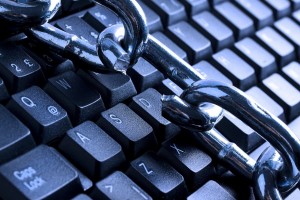 In the wake of the massive Equifax data breach, many of us are left wondering what, if anything, we can do to secure our identities and personal data. This certainly isn’t a new issue and it’s one that we’ve been grappling with for years now. It seems as if there’s a new data breach every week and each incident is worse than the last.
In the wake of the massive Equifax data breach, many of us are left wondering what, if anything, we can do to secure our identities and personal data. This certainly isn’t a new issue and it’s one that we’ve been grappling with for years now. It seems as if there’s a new data breach every week and each incident is worse than the last.
Compounding the problem is the fact that data privacy and security laws are antiquated, with many remaining unchanged since the 1980s or earlier. Complicating things even further is rapid technology advancements and the increasing prevalence of smart devices and the Internet of Things. More and more devices are run using software with complex, lengthy user agreements that no one ever actually reads, but that deprive users of traditional ownership and property rights in the very devices they purportedly “own.” This becomes a particularly troubling issue when automobiles and other smart devices can be remotely controlled and shut down at the whim of the product’s manufacturer.
It’s clearly a looming and complex problem. So what’s a consumer — and society — to do? Joshua A. T. Fairfield attempts to answer this very question in his recently published book, “Owned: Property, Privacy, and the New Digital Serfdom” (affiliate link).[1]
As he explains in the Introduction, rapid technological advancements are having a drastic and detrimental effect on privacy rights:
Privacy is a scarce and precious social value. As our personal information becomes increasingly digitized, there is a growing concern not just about who collects our data, but what they collect. We are learning helplessness in the face of rampant spying by the devices that surround us.
Another important concept that Fairfield addresses and that underpins the arguments he makes in this book is an idea that I often express when speaking to lawyers about using technology ethically: that the online is simply an extension of the offline. According to Fairfield, this is the key to preserving the sanctity and security of digital property rights:
Digital rights are inexplicably intertwined with ordinary property. Online and offline spheres are no longer discrete spheres and can no longer be governed effectively under radically different systems…The embedding of software into objects means software pervades everyday life.

Decrypting Crypto, Digital Assets, And Web3
"Decrypting Crypto" is a go-to guide for understanding the technology and tools underlying Web3 and issues raised in the context of specific legal practice areas.
Fairfield suggests that the solution to this digital property rights dilemma is to extend traditional property rights to the digital sphere. Doing so will protect consumers and simplify the concept of property ownership, whether physical or digital.
In the book, he thoroughly examines this concept by identifying and exploring the four components of traditional property ownership that he asserts should be unilaterally applied to digital property as well:
First, people have the right to modify their own property…Second, they can sell it to others, free and clear, when they are done with it. Third they can use it and enjoy it free from the interference of others…Fourth, the can exclude others from using it without their consent.
Fairfield takes a deep dive into these ideas in his book, tackling traditional concepts of property ownership and suggesting frameworks for applying them to digital property rights. He acknowledges that the path to fair and equitable digital property ownership won’t be an easy one, but suggests that ultimately, the property rights of the individual will prevail:
So I predict confidently that the laws that corrode property interests will fall, across the broad warp and weft of the law. The Stored Communications Act , which permits snooping on email that has been “abandoned” by storage in the cloud, will be rewritten. DMCA 1201, which lets companies lock owners out of their own property, will be reworked. Cell phones will be unlocked. Car enthusiasts will be free to tinker. Farmers will have the right to repair their tractors. The FTC will bring actions against the abusive manufacturers of Internet of Things devices. Courts will recognize that stealing Bitcoin is theft…I have painted a scary picture of potential futures, but let me end on a note of optimism. There will be protests, but I firmly believe that we will win.
Let’s hope Fairfield is right. And if you’d like to learn more about his predictions and recommendations, make sure to read his book.
[1] I received a complimentary copy of this book for review purposes.
 Nicole Black is a Rochester, New York attorney and the Legal Technology Evangelist at MyCase, web-based law practice management software. She’s been blogging since 2005, has written a weekly column for the Daily Record since 2007, is the author of Cloud Computing for Lawyers, co-authors Social Media for Lawyers: the Next Frontier, and co-authors Criminal Law in New York. She’s easily distracted by the potential of bright and shiny tech gadgets, along with good food and wine. You can follow her on Twitter @nikiblack and she can be reached at [email protected].
Nicole Black is a Rochester, New York attorney and the Legal Technology Evangelist at MyCase, web-based law practice management software. She’s been blogging since 2005, has written a weekly column for the Daily Record since 2007, is the author of Cloud Computing for Lawyers, co-authors Social Media for Lawyers: the Next Frontier, and co-authors Criminal Law in New York. She’s easily distracted by the potential of bright and shiny tech gadgets, along with good food and wine. You can follow her on Twitter @nikiblack and she can be reached at [email protected].
